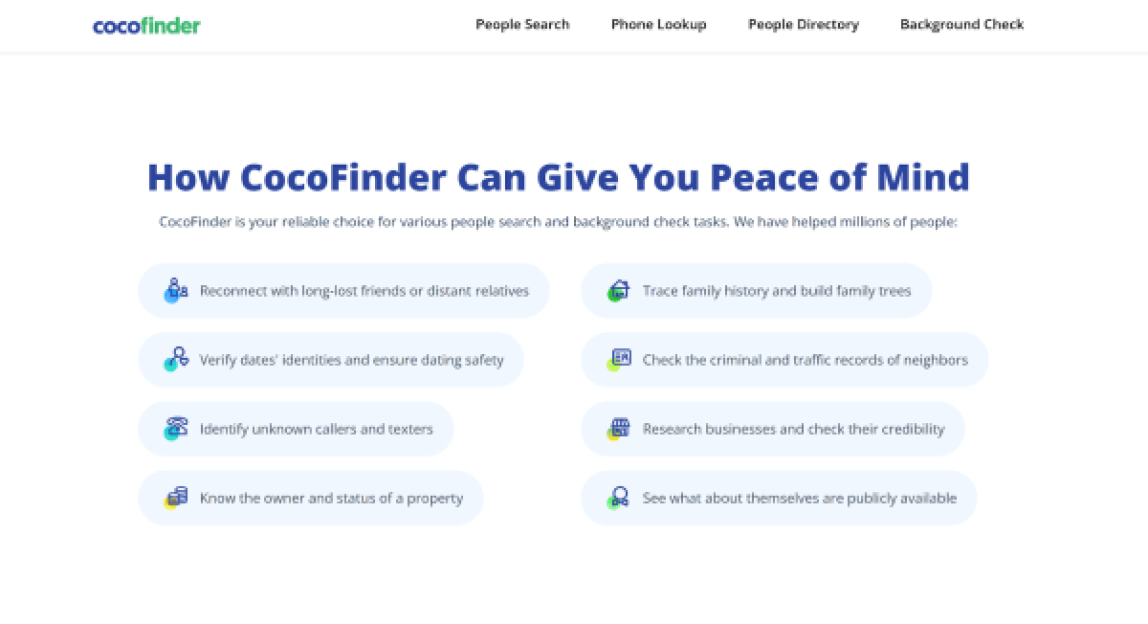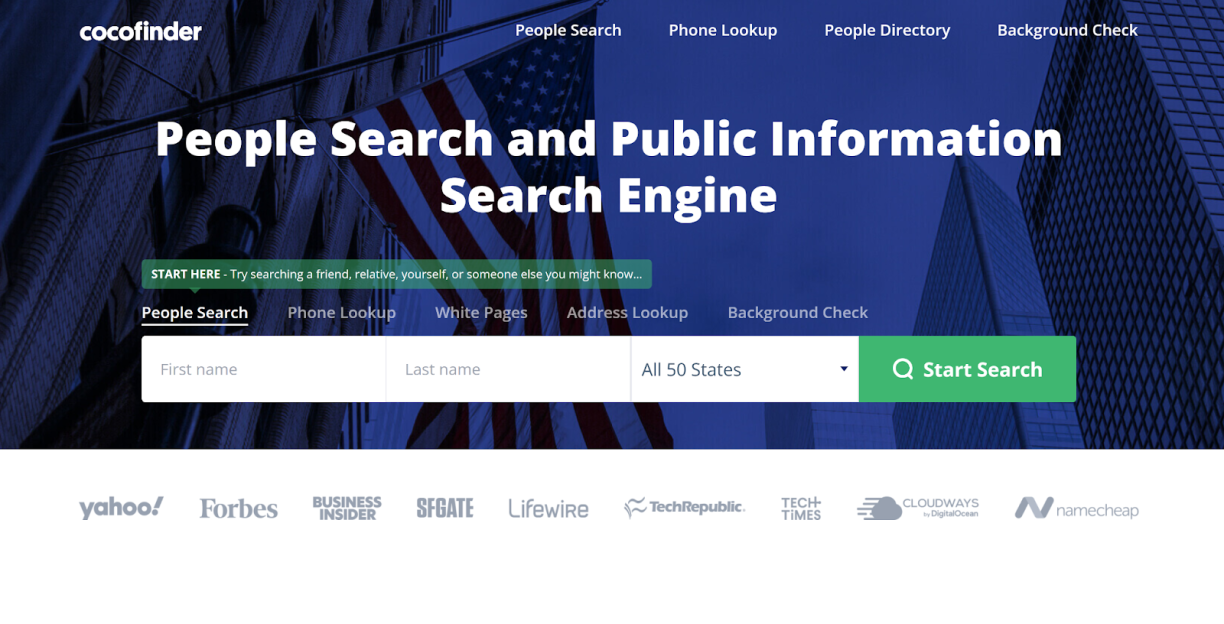In 2025, running a people search can feel like stepping into a digital jungleâpublic records, social media platforms, and countless databases offer fragmented or outdated information. Without a structured approach and proper safety measures, searches risk revealing personal details, invoking biases, or infringing privacy. This guide demonstrates how to conduct a people search using CocoFinder effectively while maintaining anonymity, maximizing accuracy, and respecting ethical boundaries.
1. Establish Clear Objectives and Privacy Requirements
Define What You Need
Before diving into any search, a people search should begin with specific questions:
- What are you hoping to find? e.g., current location, contact info, mutual connections.
- How will this information be used? e.g., reuniting with a friend, vetting a contact.
- Are there legal or reputational sensitivities? e.g., potential FCRA issues.
Clarity around goals helps guide both search strategy and data interpretation.
Adopt Privacy-by-Design Principles
CocoFinder allows users to search without creating an account, which helps maintain anonymityâa strong feature for personal investigations or sensitive cases.
To stay secure:
- Use private/incognito browser mode.
- Avoid revealing personal credentials.
- Clear browsing cookies and history after each session.
Prepare Accurate Search Inputs
Gather Verified Identifiers
High-quality inputs yield better results. Before logging into CocoFinder, collect:
- Full legal name (including middle names or initials).
- Known aliases or maiden names.
- Geographic clues, such as city or ZIP code.
- Supplemental data, like phone number or email address.
Having multiple identifiers reduces false positives and fine-tunes results.
Clarify Your Endpoint
Consider whether you’re seeking:
- Basic contact details: name, address, numbers.
- Criminal or legal history: background check specifics.
- Behavioral context: social links, employment, property.
This influences which CocoFinder modules you’ll use (people search, phone lookup, address lookup, or background check).
Execute the Initial Name-Based People Search
Step-by-Step Name Query
- Visit CocoFinder and select People Search .
- Input full name and, if possible, city/state of interest.
- Use filters if available (age range, middle initial).
- Submit and review returned matches.
CocoFinder typically presents preliminary detailsâname variants, approximate age or DOB, and geographic matches.
Triage Results
- Exact matches: prioritize entries aligning with known identifiers.
- Discard obviously incorrect profiles (different age, location).
- Bookmark potential profiles for deeper investigation.

Conduct Reverse Phone Lookup (When Applicable)
If you have a phone number but not a name, switch to CocoFinder’s Phone Lookup feature.
- Enter full number (with international or area code).
- Review name, associated address, and carrier info.
- Cross-verify these details with the results from your people search.
Phone lookup often uncovers names tied to numbers, revealing deeper context (landline vs. mobile, linked address).
Validate Data with External Sources
A single query can’t guarantee accuracy. Use corroborative platforms:
- Social media profiles: LinkedIn, Facebook, Instagram.
- Public records: court systems, property registries.
- People directories and licensing boards.
Ethical Triangulation
Confirm email addresses via profile matches, verify addresses through property or satellite data, and cross-check employment using LinkedInâbuild confidence through triangulation.
Use Advanced Search Features for Precision
If supported, leverage wildcards and Boolean operators:
- “Jo*n Smith”; finds John, Jonah, Joann.
- “Michael AND Smith”; ensures both name components are present.
- “Taylor NOT Lee”; excludes unrelated individuals.
This refines results and saves valuable time.
Safeguard Personal Privacy and Data Security
Anonymity Preservation
CocoFinder maintains user confidentialityâsearches are anonymous and not linked with personal accounts. Still, users should:
- Clear browser history and cookies post-session.
- Avoid entering personal credentials or identifiable data.
Data Minimization and Transparency
Only collect what’s necessary:
- Avoid storing entire legal histories unless needed.
- Respect sensitive contentâe.g., criminal records.
Ethical and Legal Boundaries
CocoFinder is not FCRA-compliant and its information cannot be used for employment, leasing, credit, or legal compliance screening. Users must:
- Confirm their searches have legitimate and ethical purposes.
- Avoid using profiles for discrimination, stalking, or harassment.
Clean-Up Procedures: Opting Out and Data Reduction
Even as a searcher, you may want to manage your own privacy footprint.
Opt-Out Process
If you find your own info in CocoFinder:
- Search yourself.
- Copy your profile URL.
- Submit opt-out form with your URL and primary contact details.
- Expect removal within 24â48 hours.
Maintain Your Digital Hygiene
- Regularly remove personal info from data brokers using their opt-out services.
- Use tools like Optery or Incogni to automate removal and monitoring.
- Run periodic privacy audits every 3â6 months.
Final Thoughts: Balancing Insight with Integrity
When used responsibly, CocoFinder is a powerful tool for people search, people finder, and phone lookup, offering fast, intuitive access to public records and contact info.
By following this guideâclearly defining objectives, preparing inputs, vetting results, maintaining anonymity, and respecting privacy rightsâusers can execute safe, accurate searches while minimizing risks to themselves and others.




